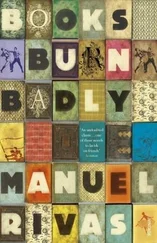Manuel Rivas - The Low Voices
Здесь есть возможность читать онлайн «Manuel Rivas - The Low Voices» весь текст электронной книги совершенно бесплатно (целиком полную версию без сокращений). В некоторых случаях можно слушать аудио, скачать через торрент в формате fb2 и присутствует краткое содержание. Год выпуска: 2016, Издательство: Harvill Secker, Жанр: Современная проза, на английском языке. Описание произведения, (предисловие) а так же отзывы посетителей доступны на портале библиотеки ЛибКат.
- Название:The Low Voices
- Автор:
- Издательство:Harvill Secker
- Жанр:
- Год:2016
- ISBN:нет данных
- Рейтинг книги:5 / 5. Голосов: 1
-
Избранное:Добавить в избранное
- Отзывы:
-
Ваша оценка:
- 100
- 1
- 2
- 3
- 4
- 5
The Low Voices: краткое содержание, описание и аннотация
Предлагаем к чтению аннотацию, описание, краткое содержание или предисловие (зависит от того, что написал сам автор книги «The Low Voices»). Если вы не нашли необходимую информацию о книге — напишите в комментариях, мы постараемся отыскать её.
A brilliant coming-of-age novel from one of Spain’s greatest storytellers,
is a humorous and philosophical take on memory, belonging, and the nature of storytelling itself.
The Low Voices — читать онлайн бесплатно полную книгу (весь текст) целиком
Ниже представлен текст книги, разбитый по страницам. Система сохранения места последней прочитанной страницы, позволяет с удобством читать онлайн бесплатно книгу «The Low Voices», без необходимости каждый раз заново искать на чём Вы остановились. Поставьте закладку, и сможете в любой момент перейти на страницу, на которой закончили чтение.
Интервал:
Закладка:
Aunt Maruxa, who later happily married Xoán Agra, a taxi driver from Sada, opened her arms and lifted them to the sky like two exclamation marks: ‘You see! I can’t possibly marry this man!’ The huddle of people killed themselves laughing. And killed the night with a polyphony of little bells. The fire laughed as well, in sparks and smuts. The scene was reflected and painted a picture on the window above the sink. That planisphere in chiaroscuro was the last image to be retained on the eyelid of sleep. Cradled by the low voices, the clandestine children fell asleep on the staircase in Corpo Santo.
4. The War, the Cow and the First Plane
THERE WAS A rumour doing the rounds. A glaring alarm for any who chose to see it in the oblique shadow of the news’ typography.
Both my grandfathers felt the claws of the human hunt that was unleashed with the triumph of the 1936 Fascist coup. One was at death’s door; the other spent time as a fugitive in the mountains, with some colleagues.
But all I ever heard from them about the war was a couple of stories where they talked about birds. Two omens linked with nature, from which they knew, with a degree of certainty, what was going to happen before it happened.
At the beginning of that July, Manuel Barrós, my grandfather from Corpo Santo, one day came back home mournful and silent, he who was normally so lively and chatty. He didn’t feel like eating. And he didn’t regain his spirits until he opened his mouth and explained what had happened. On a cart track, there had been a fight between two hoopoes. Two hoopoes? Oh, come on! It can’t have been that serious. The truth is he’d seen lots of fights between animals, the blustering of males, but never felt such horror before. The two hoopoes were pecking each other to death, unyieldingly. My grandfather tried to shoo them away, but they paid no attention to his shouts or threatening stick. Those small birds had turned their whole bodies into weapons. Their whole being into an impulse of death. Manuel of Corpo Santo decided to abandon the place of horror. He interpreted this event as a defeat for the whole of nature. Despite not being at all superstitious, he said, ‘Something terrible’s going to happen.’
In the other story, the one about my paternal grandfather, the presence of a bird was more phonosymbolic. Early one morning, around that same date, Manuel Rivas, a carpenter from Sigrás, was on his way to work with some colleagues in the back of a lorry. There was a thick fog, so thick it could have been kneaded with fingers, and the lorry penetrated it slowly. After a curve, a priest in a cassock appeared by the side of the road, like a ghost. He was a corpulent man, whose figure was exaggerated by an enormous, black felt hat and an expansive umbrella. The workmen were taken aback at such an early hour and slowly scanned the apparition, which was soon left behind. Until one of them, a young man, imitated the call of a carrion crow from the trailer:
‘Caw, caw, caw!’
The joke brought about laughter, but there was still time to hear the thunderous reply:
‘Go ahead and laugh! We’ll all be laughing around the middle of the month!’
It was the start of July. A good month. The month of St James. The month of festas . Having recalled this episode, my grandfather would murmur, like someone who has suddenly and surprisingly deciphered a historical enigma, ‘He knew it! That priest knew what was going to happen!’ I’ve always been impressed by the potential of this story, of what occurred that morning in the fog. Someone in possession of a big secret goes and reveals it because he is annoyed at a childish joke.
Manuel, the one from Sigrás, was affiliated to the trade union. And saying ‘trade union’ on the coast of A Coruña meant the National Confederation of Labour. He spent some time in prison during the two black years (the bienio negro ) of the Second Spanish Republic, but the judge himself dropped all the charges. He took part in the long, drawn-out strike to achieve an eight-hour working day. Whenever he referred to this struggle, the briefest of incisions into his silence, a libertarian melancholy would emanate from the depths of his irises.
With regard to language, there was a huge difference between the grandfather who was a farmer and the one who was a carpenter. Manuel of Corpo Santo was talkative; he would quickly make conversation. He talked, with great pleasure, whenever he had company, and he talked when he was alone. He sometimes didn’t realise this — the fact he was no longer alone — and carried on talking to himself. I remember walking with him, holding his hand, as he talked to himself with growing energy, with the dynamo of his voice, that current transmitted by the squeeze of his hand, the feeling we were about to take off. Manuel of Sigrás, on the other hand, spoke very little. I spent more time with him. I knew him better. But not because of what he said, because of what he kept quiet. He expressed himself using a Morse code of silences. Castro de Elviña was close to O Martinete. We would occasionally go there, María and I. We were looked after by Aunt Felicitas, my father’s youngest sister. And we spent long periods in Aunt Amparo’s workshop, where the rhythm of the sewing machines kept time with the emotions of the radio serials. My grandparents’ house was near a quarry. The open-air mine had advanced implacably and deposited their house on a kind of tremulous cliff. Before the quarry was shut down, life was regulated by a kind of dynamite clock, the hours marked by explosions. When my grandmother was embroidering, there would be a moment more silent than silence. She would lift her needle, there would be an explosion, the trembling of windows, and, without making a remark, she would go back to the laborious construction of her embroidery. When my grandfather returned from work, he would take me with him to a tavern in A Cabana. He would say hello when we arrived, but then we would sit in a corner, on two benches either side of a table. The most common drink was a bowl of white Ribeiro, but he always drank light red wine in a glass and invited me to have a soft drink: Mirinda, orange flavour. And so we would keep each other company, sip by sip. From time to time, he would roll himself a cigarette. The column of smoke was slower and denser than the Celtas my father smoked. It climbed and formed a thick cloud illuminated by the lamp. The exhalation produced an animated design, a landscape. His hair was already silvery by then and, when he removed his beret, it produced a luminous effect, a kind of phosphorescence. I didn’t like berets or white hair or wrinkles. I don’t think children in general are attracted by the face of old age. But I liked his head. A lot. In his own way, the silent man also used to talk to himself. In between sips and exhalations, he would ponder something. He seemed on the verge of saying it. He glanced up at the cloud. In the background, the cackle of customers at the bar. At which point he would mutter, ‘Boh!’
The qualities that were prized most highly in the art workshops of Flanders were ‘a fertile look, a sincere hand’. These two conditions were shared by the farmer, the carpenter and the seamstress. My grandmother from Corpo Santo, Xosefa, died soon after the war, when my mother was still a child. The carpenter and the seamstress had three daughters and a son, my father, who ended up being born in Zamora during a snowstorm, when my grandfather was working on the construction of a hospital. The baby was in luck: the first sound he heard was that of his father building a cradle.
Things got complicated after that. This last delivery brought about a discomfort in the seamstress that bothered her continually. She walked like a cloud. In the shadow of a dream. The worst thing for a working-class family, during the post-war years of hunger, was not to have work or land. It was better during those years to be a farmer. The girls were looked after by their aunts. The three women, all single, had worked as housemaids in A Coruña. They’d managed to put something by, they loved each other, looked out for one another, were very sensitive in their dealings. Far removed from macho rudeness and abuse, they’d turned their home into a real doll’s house. This is where Amparo, who would later become a successful fashion designer, grew up. She showed textile subtlety in her speech and behaviour. In her workshop, she treated everybody — adults and children, men and women — as if they were cut from the finest cloth in Galicia. My father’s destiny was somewhat different. He himself said he lived like a ‘little savage’. He barely attended school. In order for him to eat, they sent him to live with his grandparents, who were farmers, so he could pasture the cows. But he didn’t eat much. He spent the day between moos, he used to say. And at night, he mulled over the unending litany of the old people’s rosary. This was his work for years. Acting as a butler to cows. Early in the morning, he would sometimes pass in front of the doll’s house wrapped in scraps of mist from the river. He went so far as to stroke the doorknocker. But he never knocked. The cows were getting away along the riverbank. Amphibian shapes driving through the reeds and fog.
Читать дальшеИнтервал:
Закладка:
Похожие книги на «The Low Voices»
Представляем Вашему вниманию похожие книги на «The Low Voices» списком для выбора. Мы отобрали схожую по названию и смыслу литературу в надежде предоставить читателям больше вариантов отыскать новые, интересные, ещё непрочитанные произведения.
Обсуждение, отзывы о книге «The Low Voices» и просто собственные мнения читателей. Оставьте ваши комментарии, напишите, что Вы думаете о произведении, его смысле или главных героях. Укажите что конкретно понравилось, а что нет, и почему Вы так считаете.












